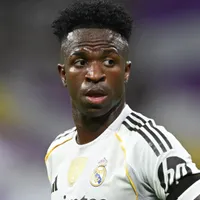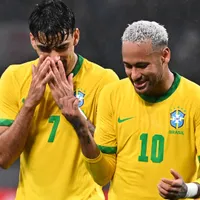Brazil is to soccer what New Orleans is to jazz – the most beautiful form it can take. Brazil is always a contender to win the men’s World Cup or any other competition it plays in. The national side sacks managers for only reaching the quarterfinals but no further. A last-eight finish is a waste of the team’s talent and expectations.
Until the past few decades, that success was a tribute to the domestic growth of the sport within Brazil. Even today, when European clubs sign Brazilian teenagers, the club system is integral to the Seleção’s success. It is the clubs that grow the players, teach them the style and play to the standard of Brazilian players. Then, they integrate into the significance of that famous yellow kit. Because Brazil is so large, only a tiny percentage of its soccer players will ever wear the iconic shirt. The clubs were – and to a limited extent still are – the groups that start winnowing the player pool.
Flamengo: Winning All the Cups
The domestic system to see how it influences the Brazilian style. The best place to get a deep dive into that is with its richest club, CR Flamengo. Longtime soccer writer and podcaster Stephen Brandt takes a fresh look at this club in his new book. Flamengo: Winning All the Cups not only goes through the history of the club through the COVID era. It provides social and sporting context to Flamengo. That illustrates what this club is and how it came to be one of South America’s most successful sides.
In the interest of full disclosure, I have collaborated with Brandt on projects in the past. Also, I wrote the foreward for his last book.
This book on Flamengo has elements of a traditional club narrative. To start, readers learn about the club’s founding. That touches upon high points like major trophies won and key players. In this case, Brandt spends time talking about the impact Zico has on Flamengo and its fans. Brandt provides background and context on the 1981 Intercontinental Cup victory over Liverpool.
A changing modern era
New to this book is the impact of the COVID pandemic on the club and Brazilian soccer While the long-term implications of the COVID pandemic in Brazil are still to be seen, he does a good job describing how the shutdowns impacted even the rich Flamengo.
If you have read Brandt’s other books or followed his other soccer media, you know that his writings routinely incorporate historical and cultural elements into the main subject. Flamengo: Winning All the Cups is no different. Interspersed between stories about trophies won by various Flamengo sides are descriptions of things like how Brazil’s culture influences its soccer, how European soccer sides approached the Intercontinental Cup, and why military governments in Brazil changed how clubs like Flamengo operated. At times some of this background color can be a little too long, but again, if you know Brandt you know this is how he operates.
As someone with admittedly and ashamedly little knowledge of Brazilian club soccer, I found this book to be an interesting read. I walked away knowing more not only about Flamengo but Fla-Flu, Vasco, and Brazil’s soccer organization. The book could have used more on the Flamengo-Atletico Mineiro rivalry but covered the others well. I recommend this book to those truly unaware of Brazilian club soccer and the country’s soccer culture. It can be a good primer for many of us on the hotbed of the beautiful game.
Stephen Brandt perfectly captures the history of the club and the impact of wealth on Brazilian soccer.
Flamengo: Winning All The Cups is available via Amazon and all fine booksellers.
PHOTO: IMAGO / Fotoarena















